#Technology
Ghosn: Suppliers Essential to Nissan's Future Success
Carlos Ghosn, CEO of the Nissan-Renault-Mitsubishi Alliance, says automakers are going to have to get comfortable with suppliers doing more of the work as the industry evolves. With in-car technologies progressing more rapidly than ever before, the alliance head says engineers will have to lean on parts providers to take the burden off its own engineers.
Ghosn even said he had recently spoken to supplier who accused him of not listening. “They said we are duplicating [their] work,” the CEO recalled.
“They said, ‘We are developing the same things, and at the end of the day, you’re going to order parts from me, and you’re going to pay twice — for your own development and for mine. So why don’t we start from the beginning to work together?’ That’s an important point,” he said. “We are now probably one of the largest buyers in the world.”
The automotive collective intends to sell more than 14 million vehicles annually by the end of 2022, which represents an increase of about 3.5 million units from the expected volume for 2017. The strategy includes more shared platforms and powertrains between brands, a dozen EV models, and a fleet of autonomous taxis.
Compression Test: Infiniti Set to Unveil a Variable Compression Engine
We’ve mused on Infiniti’s Variable Compression Engine in the past, calling it everything from a chameleon to the holy grail. Its killer app? The ability to changes the distance the pistons travel in their cylinders by as much as 6 mm, or about a quarter of an inch.
Why is this important? Because it is, arguably, the first major change to the workings of a internal combustion engine in more than a century.
General Motors to Build Two Bolt-based Crossovers, Considers the Data-mining Business
General Motors CEO Mary Barra outlined the company’s vision of the future at the Barclays Global Automotive Conference in New York on Wednesday. While the majority of her speech adhered to GM’s current mantra of “zero crashes, zero emissions, and zero congestion,” we also got a taste of what that thinking might yield on a shorter timeline.
In early October, GM expressed its intention to launch 20 new electric vehicles by 2023. However, we didn’t get any specific details on the matter. That changed this week. Barra claims the manufacturer will introduce three new electric models by 2020, with two of them being crossovers. The trio will share share basic components with the Chevrolet Bolt.
Self-driving Cars Head to Michigan For Winter Testing
There’s something we don’t often hear about when companies discuss the glory of the autonomous car: the lack of functionality of specific hardware during inclement weather.
Camera systems can be rendered ineffective when covered with ice and snow cover of an inch or more can easily obscure lane markings, leaving self-driving cars at a serious disadvantage. LiDAR, which operates using light beams, can be severely thrown in fog or whiteout conditions. Even if a blizzard doesn’t knock out the vehicle’s sensor array, its computer will still have to know how to mitigate slippery road surfaces.
Whether you’re human or machine, winter driving is extremely taxing. But technology companies hoping to build a self-driving car eventually have to move into snowy regions to advance testing. Some of the bigger automakers already have. Ford, for example, has begun extensive regional mapping — hoping to give cars handicapped by poor visibility a leg up.
Waymo has also decided it’s time to throw on a parka and winter tires. It’s heading to Michigan to start cold-weather testing next week.
QOTD: Are Wacky Trade Show Prototypes Important or Just Plain Stupid?
Automotive trade shows serve as a wonderful opportunity for manufacturers and suppliers to showcase upcoming products to the people most interested in them. However, carmakers understand that you have to take time to feed the global hype machine, which usually means tossing a few concept vehicles into the mix. While some of these designs serve as tantalizing preludes to real-deal automobiles, others are fantastical fabrications — representing little more than an interesting idea that will never reach production.
This year’s Tokyo Motor Show saw plenty of vehicles straddling the line between faintly tangible and utterly incorporeal in terms of future production. Sure, we know not every prototype will accurately represent subsequent real-world models. Subaru’s Viziv may not be a dead ringer for the next WRX, but it at least gives us a sense of where the design team is heading. The same is true for Honda’s Sports EV or Mazda’s incredible-looking Vision Coupe and Kai concepts.
However, for every concept car earnestly trying to convey a new design language or highlight upcoming features there is also something so implausible that it leaves you wondering why the manufacturer wheeled it out in the first place. Which brings us to today’s question: are these over-the-top automotive prototypes meaningful or a complete waste of resources?
If You're Wondering Why Automakers Can't Stop Talking About Mobility, Wonder No More
“Mobility” is easily the most overused term in today’s automotive vernacular. Despite being incredibly nonspecific, executives can’t help but make it the bookend of most speeches involving long-term goals and production stratagems. But why?
The term itself pertains more to the industry itself than the specific products it’s developing. While “mobility” can be applied to any conveyance with a technological bent, the word also represents a company’s ability to move into other areas of business. And that’s what gets the investors and market analysts tugging at their collective collar, damp across the brow, so red hot they can’t help but raise the stock valuation of any company that seems poised to make a big move.
Tesla’s entry as novel manufacturer with a unique product was enough to send its share price through the roof, and established automakers took notice. Despite Mark Fields’ best attempt to rebrand Ford as a tech company, he couldn’t bottle that same lightning and paid the ultimate price — getting fired. However, General Motors may be succeeding where Ford initially failed. The proof of the pudding is how high its share prices continue to climb.
GM to Patent Temporary Digital Key?
A standard part of the dealership test drive experience involves the salesperson grabbing the key to the car in question out of a lockbox, then accompanying the customer on the drive. A new patent filing suggests General Motors may be looking for a way to give customers access to the car without requiring a salesperson to dig through a box of keys.
GM appears to be working on a patent that would allow customers to have a temporary digital key granted to them in order to gain access to a vehicle they want to test drive.
The system would work like this: Interested customer applies for the key, the dealer verifies the buyer’s interest and identity, dealer approves the test drive and monitors it. If the customer doesn’t want to buy the car, the dealer can revoke the digital key authentication, and it can also do the same to a prior key holder if the vehicle is used and someone other than the first title holder buys it.
AAA Study Finds Infotainment Systems Dangerously Distracting
Automobiles are more tech-laden than ever and, according to a recent study, those interactive bells and whistles contribute heavily to distracted driving.
With connected cars ready to shoot off assembly lines and into driveways at an accelerated pace, the danger of someone flicking through their dashboard menus when they should be looking at the road is only going to grow. Many states prohibit phone usage while driving, yet there is no law against setting your radio pre-tunes or customizing your digital dashboard while hurtling down the expressway — not that there necessarily should be.
However, the American Automobile Association’s Foundation for Traffic Safety commissioned researchers from the University of Utah to examine the physical and mental demand required to complete various tasks using the infotainment systems in 30 new 2017 vehicles. The conclusion was that the growing cavalcade of buttons, screens, and technology does an incredibly good job at keeping you from minding the road ahead.
QOTD: What Will Force You From a Manual Transmission, Permanently?
Yesterday, Steph Willems penned a little Question of the Day about the manual transmission. In it, he asked what would have to occur to get you, the buying public, back into the manual transmission in a large-scale way.
As of this writing, it’s blowing up the comment counts as everyone lists the particulars of how they hem and haw over the manual transmission. Shifting a vehicle yourself is romanticized and desirable; a bygone art to be treasured and maintained for future generations of drivers.
Except when it isn’t. What would force you from a manual transmission vehicle for the rest of your days?
Nobody Cares About or Uses the Premium Technology in High-end Luxury Cars
Fifty years ago the equipment disparity between luxury vehicles and economy cars was vast, but things are different today. With the exception of nicer materials and cutting-edge technology, you can get essentially everything you would want in a basic hatchback. We’re not talking about power windows and air conditioning either; the technological trickle-down now includes things like active safety systems, heated seats, in-car navigation, multiple driving modes, and more.
As it turns out, the great unwashed masses of today enjoy their pleb-mobiles at about the same level as affluent individuals like their own diamond-encrusted executive mobility suites. The reason? Because nobody cares about premium features they can’t figure out how to use, nor do they miss technology that isn’t part of their daily routine.
Infotainment Market Will Be Worth Over $40 Billion by 2024: Report
A report by industry analysis firm Hexa Research is positing that the market for automotive infotainment systems will be worth more than $40 billion by 2024.
That’s thanks to rising consumer demand, improved technological capabilities, and improved incomes, according to the report. As it stands, the North American market accounted for a hair over 35 percent of the revenue from the infotainment industry in 2016.
Bulky A-pillars Getting in the Way? Toyota Has a Clear Solution
Back in the days of sky-high tailfins and wraparound windshields, A-pillars weren’t of sufficient thickness to hide little Timmy riding his bike, or maybe that Ford Fairlane approaching from behind that shrub to your left. No, front seat vision was grand — trying to stop your Detroit barge with unassisted drums brakes was the real challenge.
These days, the high-strength steel and airbags needed for rollover and side-impact protection have turned those slim pillars into Corinthian columns capable of hiding a small crowd. A-Pillars are bulky, and that’s a safety problem in itself.
What to do? In Toyota’s case, simply develop a way of seeing through them.
Elon Musk Presses for Total Ban on Autonomous Weapons, Self-driving (Potential) Killer Cars Still Okay
The United Nations recently voted to begin formal discussions on autonomous weapon systems, with 116 of the world’s leading robotics and artificial intelligence experts responding by calling on governments to simply ban them.
The coalition, fronted by Tesla’s Elon Musk and Alphabet’s Mustafa Suleyman, claims this is a dark road the world doesn’t want to go down. Aimed at the International Joint Conference on Artificial Intelligence, a letter from the group warned the U.N. not to usher in the “third revolution in warfare” (following gunpowder and nuclear arms).
While I’m not about to suggest there aren’t serious risks involved with weaponizing thinking machines, it does seem lightly hypocritical for Musk to condemn them over a lack of trust while continuing to champion self-driving cars. Apparently, technology experts feel a Terminator scenario is thoroughly unacceptable but a potential Maximum Overdrive situation is just fine.
Ford CEO Sees a Future for Hands-on Driving, but a New Patent Shows the Company Hedging Its Bets
If you believe certain segments of the media, we’ll soon be able to avoid the drudgery of turning a steering wheel, pressing and releasing pedals, and — gasp! — shifting gears.
The inevitable onset of self-driving vehicles, tech aficionados and urbanists tell us, will bring traffic fatalities down to zero, somehow remove all congestion from the road, and turn our lives into a never-ending sojourn of blissful tranquility. Never again will you take that aimless and unprogrammed late-night drive, just for the hell of it. Never again will you bother with buying and owning a car. Automakers will simply turn their driverless cars loose, emptying driveways while filling streets with hands-off ride-sharing pods.
Not so fast, says Ford’s newly minted CEO.
The 2018 Honda Accord Gets Tech the Entire Acura Brand Can't Yet Have
The Honda Accord is by no means a younger sibling, operating as the senior member of American Honda’s fleet.
More specifically, the 2018 Honda Accord will never be viewed as the little brother in the American Honda family, not with these substantial dimensions and MSRPs that reach deep into the $30Ks.
But the 10th-generation Accord is still a Honda. Just a Honda. Merely a Honda. Only a Honda. And while you might expect Honda to enjoy technological hand-me-downs from the automaker’s upmarket Acura brand, that’s not the way it works. Not when it comes to the Accord.
As a result, we’ll wait and see which hand-me-ups appear on the next all-new Acura, the third-generation 2019 Acura RDX.



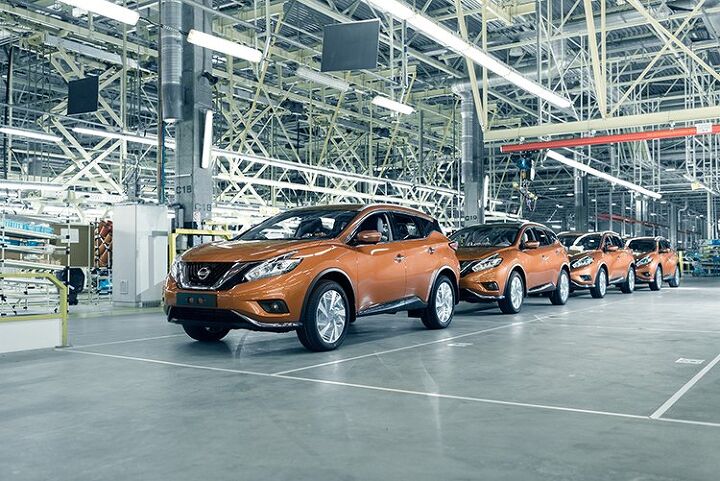
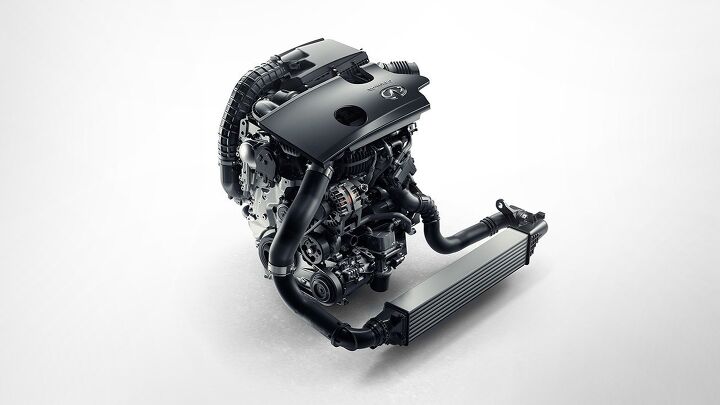
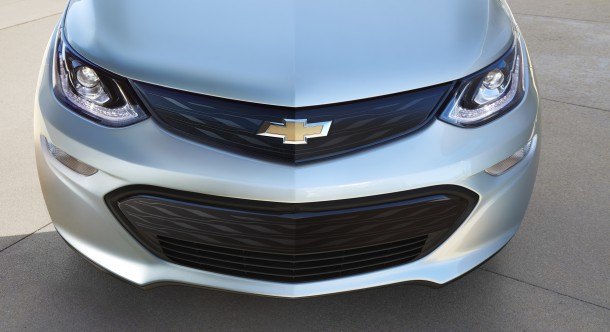
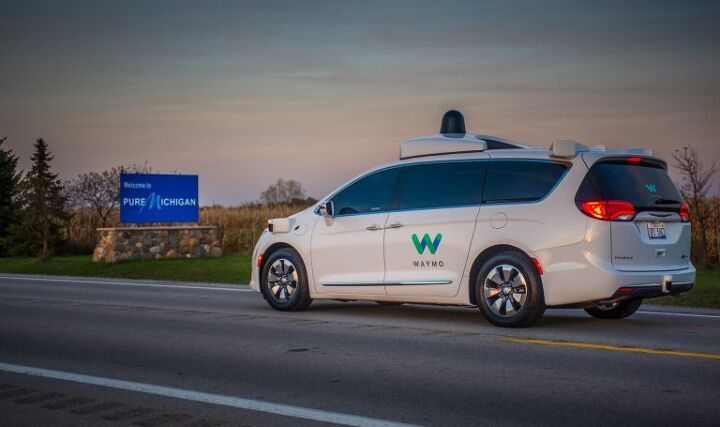


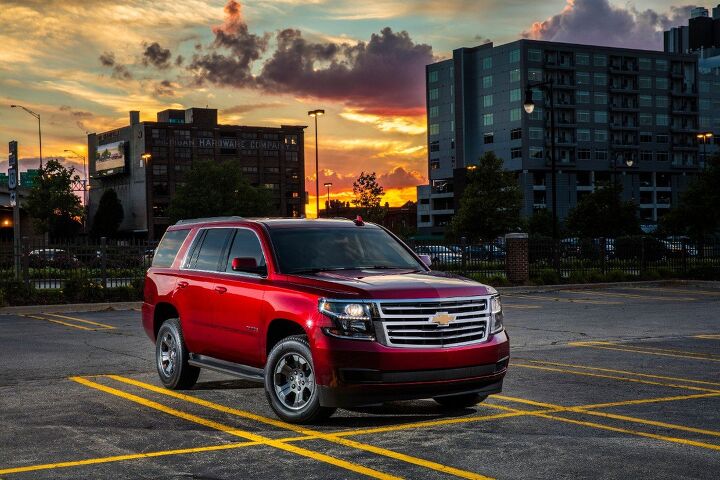

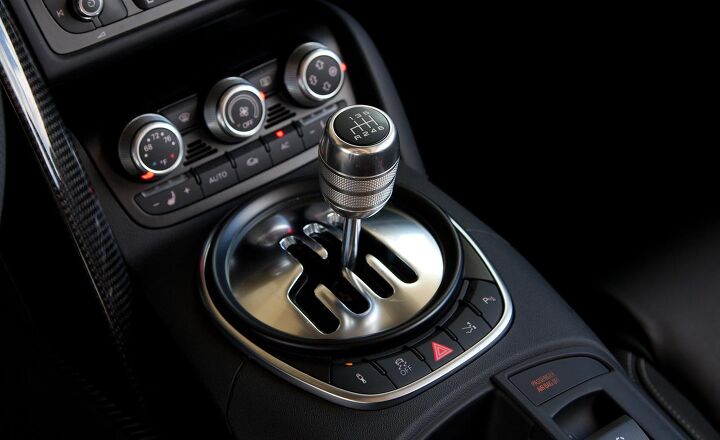

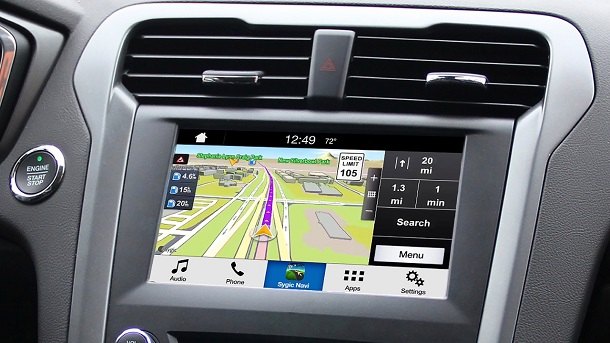



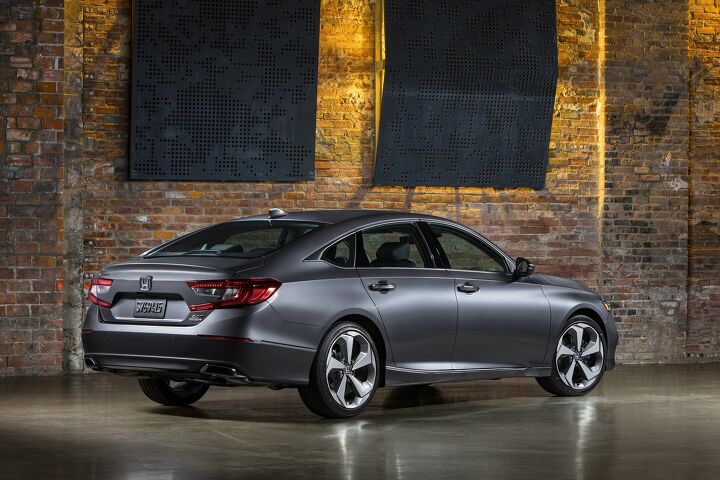












Recent Comments